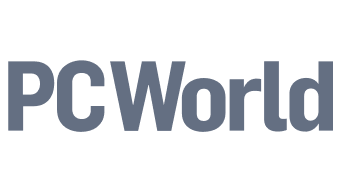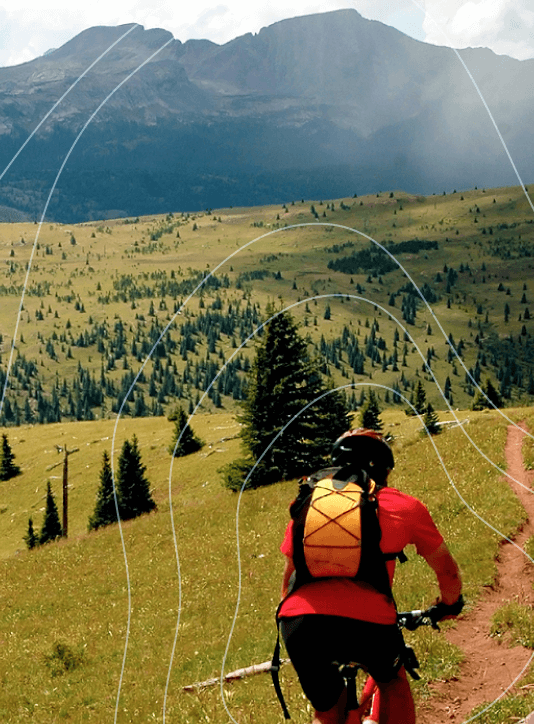Remote Science Jobs: 10 Companies Hiring
Last Updated:
By
|
9 min read

As seen in:







Table of Contents

Explore remote jobs at leading companies across 40+ industries.
For many years, a career in science meant a daily commute to a healthcare facility, office space, or science laboratory of some sort. But technology has changed the face of the industry, and flexible work is now more common.
Today, scientists, researchers, engineers, data scientists, and even AI specialists can pursue careers from home. Remote science jobs offer you the chance to have some work-life balance while continuing to drive meaningful scientific progress.
This article covers what remote science jobs are, 10 companies that hire remote scientists, and a guide to finding and landing your ideal remote job as a scientist of any discipline.
What Are Remote Science Jobs?

Remote science jobs are positions that enable scientists, researchers, and technical professionals to perform research, analysis, and collaboration remotely through digital platforms and data-driven tools.
Every remote scientist job will look a little different, but they all share the same goal of applying scientific expertise, conducting research, and driving innovation through flexible, technology-enabled work.
“Scientist” is a broad term. It might bring to mind someone in a lab coat surrounded by beakers, but it can just as easily describe an environmentalist studying climate data, a nurse practitioner analyzing patient outcomes, or a software engineer building research models.
10 Companies Hiring for Remote, Work-From-Home Science Jobs
If you’re a professional in the realm of science, remote jobs are absolutely available to you. The 10 companies featured below are hiring for fully remote and hybrid science work-from-home jobs across research, data analysis, healthcare, environmental science, and more.
1. Amazon
Amazon is a global technology company offering ecommerce, cloud computing, digital streaming, and artificial intelligence services.
Recent remote science jobs: Applied Scientist; Senior Applied Scientist, Large Language Model Code Agents
2. Boston Scientific
Boston Scientific develops and manufactures medical devices used in interventional medical specialties.
Recent remote science jobs: Scientist II; Senior Clinical Evaluation Scientist
3. Charles River Laboratories
Charles River Laboratories provides preclinical and clinical laboratory services for the pharmaceutical and biotechnology industries.
Recent remote science jobs: Support Scientist I, Bioanalytical Chemistry
4. Emory University
Emory University is a private research university known for its programs in healthcare, science, and public policy.
Recent remote science jobs: Assistant Academic Research Scientist – School of Medicine, Human Genetics; Research Administrator, Pre-Award III
5. Insight Enterprises
Insight Enterprises is an IT solutions company that helps organizations with data, cloud, and digital innovation services.
Recent remote science jobs: AI Data Scientist Senior
6. Integral Consulting Inc.
Integral Consulting Inc. offers environmental science, engineering, and health risk assessment services.
Recent remote science jobs: Environmental Scientist; Project Scientist
7. Johnson Controls
Johnson Controls provides smart building solutions, energy management systems, and industrial automation technologies.
Recent remote science jobs: Senior Data Scientist
8. Lilly
Lilly is a global pharmaceutical company focused on developing and manufacturing medicines.
Recent remote science jobs: Clinical Research Scientist – Medical Affairs; Research and Development – Clinical Research
9. MD Anderson Cancer Center
MD Anderson Cancer Center is a leading academic medical center specializing in cancer research, treatment, and prevention.
Recent remote science jobs: Institute Associate Scientist III; Senior Data Scientist – Healthcare AI
10. Natera
Natera is a biotechnology company specializing in genetic testing and diagnostics for reproductive health and oncology.
Recent remote science jobs: Anatomic Pathologist; Bioinformatician

Join Remote.co to Unlock & Apply to Remote Jobs
How to Find Remote Scientist Jobs in 5 Steps
No matter which scientific field you choose to pursue, remote science jobs are competitive. A focused and strategic approach to your job search will help you find the right opportunities for you and demonstrate to employers why you’re the best fit for them.
Step 1: Refine Your Search
Before you start applying, take time to define what you’re looking for. Think about the ideal job titles, work location, schedule, and flexibility you’re looking for. Writing these details down will help you identify the right keywords and stay focused as you search.
For example, if you’re a biostatistician looking for a full-time remote position, you might use keywords like biostatistician, bioinformatician, epidemiologist, full-time, or fully remote in U.S.
If you’re a pharmacist hoping for a short-term hybrid role in Seattle, you could search for terms such as pharmacist, pharmacy consultant, contract, hybrid, and Seattle, Washington.
Step 2: Look in the Right Places
You can start your search with the company list in this guide, but it’s by no means exhaustive.
To continue your search for remote scientist jobs, look in the following places:
Remote and flexible job boards: These sites, like Remote.co, are curated specifically for remote and flexible jobs, often have targeted filtering options for job type and location, and only show verified listings to help you avoid scams.
Science and industry-specific job sites: Platforms dedicated to fields like academia, biotech, or data science list specialized roles to help you home in on your discipline.
Company, university, and organization websites: Major employers in your field will often post roles directly on their sites’ career pages before distributing them to job boards, offering you the most direct path to apply.
Networking and word of mouth: A significant percentage of jobs are filled this way; connect with former coworkers, lab mates, conference colleagues, and university alumni on LinkedIn, letting them know you’re specifically seeking remote opportunities in your niche.
Forums, social media, and online communities: LinkedIn groups, Slack channels, and niche Reddit communities dedicated to your scientific discipline can be invaluable sources for highly competitive roles and referrals.
Step 3: Be Strategic With Applications
It’s easy to get caught in the trap of submitting hundreds of applications, but with specialized scientific roles, quality always trumps quantity.
To get the most out of each application you submit, use these three strategies:
1. Optimize Your Application Materials for Each Job
Scientific positions often require specific expertise, so your application materials should reflect that. Use the same terminology and core skills listed in the job posting, especially when describing lab techniques, analytical methods, or software proficiency.
This helps your application get through applicant tracking systems (ATS) and shows the hiring manager that you understand the technical scope of the role.
2. Highlight Remote Work Skills Without Sacrificing Technical Space
Science jobs rely heavily on technical accuracy, but remote roles also require independence, communication, and time management. You can show both by weaving a few soft skills and remote-relevant abilities into your resume skills list while keeping the main focus on the technical qualifications needed for the role.
For example, here’s how a clinical researcher might format skills on their resume:
Core Skills
- Clinical trial coordination and data management
- GCP and FDA compliance
- EDC systems (REDCap, Medidata)
- Statistical analysis (R, Excel)
- Patient recruitment and consent
- Protocol development and documentation
- Collaboration and communication
- Virtual team coordination (Zoom, Slack, Microsoft Teams)
- Time management
3. Focus on Impact and Deliverables
Science applications are all about results, and quantifiable achievements will be what stand out to hiring committees.
For example, instead of saying “Performed lab tests,” you could write “Conducted and validated diagnostic assays, improving test accuracy by 15%.”
Similarly, you might replace “Collected and analyzed data” with “Analyzed clinical trial data from 200 participants, identifying key trends that supported FDA submission.”
Step 4: Prepare for Interviews
Interviews for science remote jobs can be extensive, often involving multiple stages that may include technical assessments, research presentations, and/or panel interviews.
Every question, whether it’s about your technical skills, research, teamwork, or problem-solving, is also an opportunity to show that you can perform effectively in a remote setting.
Emphasize how you:
- Manage projects independently
- Stay organized across time zones
- Maintain data accuracy
- Present findings clearly and concisely
- Collaborate using virtual communication tools
Be ready to discuss past projects in detail, explain your methods clearly, and show how you communicate results, coordinate with teams, and keep research on track.
Step 5: Build Skills to Enhance Your Qualifications
As you search, you’ll likely notice common requirements for the most desirable remote jobs. If you don’t meet those requirements, or if you’re not hearing back from employers and having trouble reaching the interview stage, upskilling can help you strengthen your qualifications.
Focus on in-demand, verifiable, and respected certifications or technical skills relevant to your industry.
Below are some ways different science professionals might enhance their qualifications to secure remote jobs.
- Healthcare providers may take a telehealth or remote patient monitoring course.
- Clinical researchers could earn Certified Clinical Research Professional (CCRP) status.
- Software engineers might complete cloud computing or cybersecurity certifications.
- Environmental scientists could consider training in digital collaboration tools or data management systems.
More Remote Jobs Related to Science
If you’re exploring science-related career paths beyond traditional lab or research roles, you may find strong remote opportunities in the fields below.
- Remote Data Science Jobs
- Remote Engineering Jobs
- Remote Environmental Jobs
- Remote Healthcare Jobs
- Remote Teaching Jobs
The Future of Science Is Flexible
Whether your passions lie in conservation, research, or teaching, there’s an online job for you. The world of science is becoming more flexible than ever before, offering you numerous opportunities to find the best work-from-home jobs for you.
Your next step is to focus on identifying the employers, projects, or research areas that align with your goals. Set aside time each week to search, apply, and connect with other professionals in your field. The future of science is flexible, and your career can be too.
WRITTEN BY
See more articles from


Join Remote.co to Begin Exploring Remote Jobs



